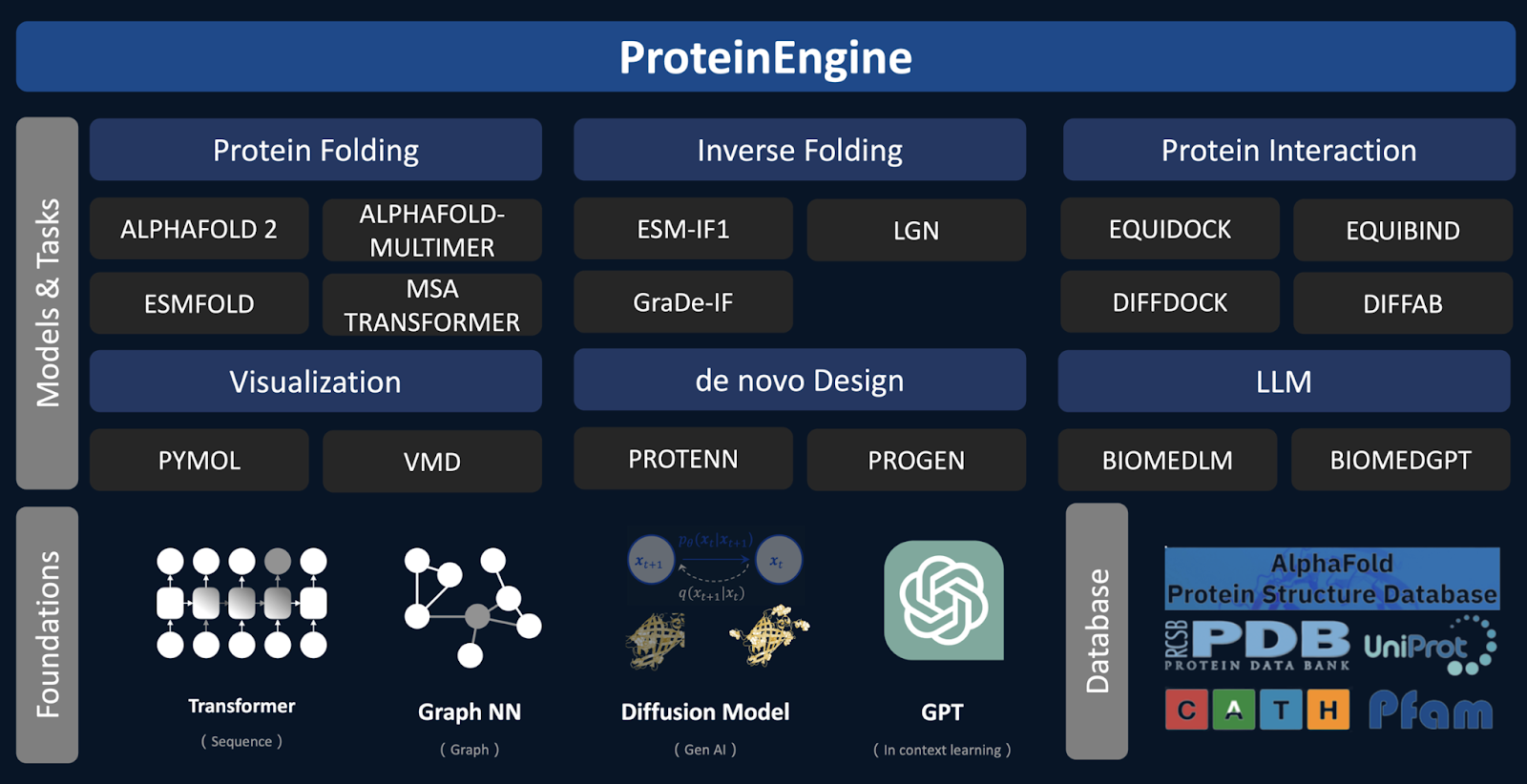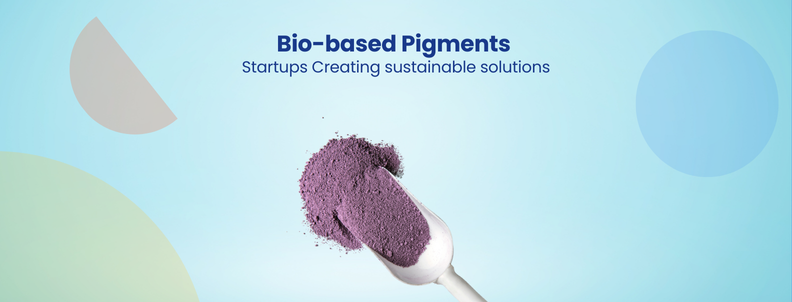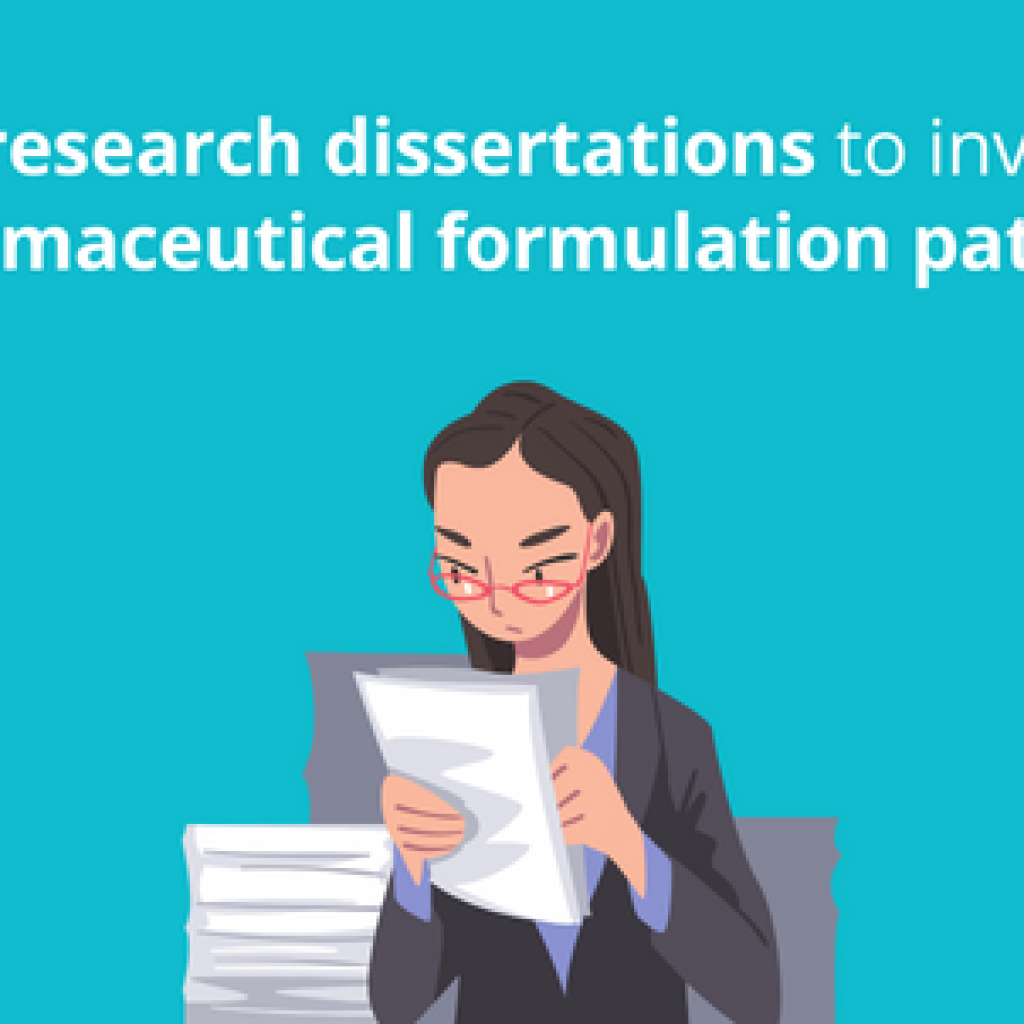The biotechnology industry grapples with overwhelming data from genomic sequencing, clinical trials, and real-world evidence. Current data analysis methods often fail to manage this data complexity.
Researchers spend up to 80% of their time wrestling with data, leaving only 20% for actual analysis and innovation. This data overload impedes the extraction of meaningful insights and slows the pace of discovery.
Using AI in Biotech solves this problem by automating data analysis and the precision of predictions.
AI can process vast datasets quickly, uncovering patterns and insights that would be impossible for humans to detect manually.
For example, DeepMind’s AlphaFold (3) uses AI to solve the decades-old protein folding problem, predicting structures with unprecedented accuracy and speed. Similarly, Zymergen uses AI to engineer microbes that produce novel materials, accelerating the development of sustainable products.
AI is revolutionizing biotechnology by enhancing the speed and accuracy of R&D processes, improving drug discovery, optimizing clinical trials, and enabling personalized medicine. These advancements reduce high costs, lengthy timelines, and low success rates related to biotech innovations.
In this article, we highlight five early-stage startups leveraging AI to drive advancements in the biotechnology industry. They have the potential to grow rapidly, are in a good market position, and will introduce game-changing technology to the market in the next 2-3 years.
This makes them a great option to partner, collaborate, or acquire.
Our exclusive list covers 700+ biotechnology startups spanning 10+ research areas, with insights into their solutions, technologies, and funding.
Connect with our experts to get the list or learn more about any biotechnology startup or company that piques your interest.:

1. AminoAnalytica
| Founding Year | 2024 |
| Headquarters | San Francisco, California, US |
| Total Funding Amount | $12.5K |
| Last Funding Round/Amount | Pre-seed/$12.5K |
| Website | https://www.aminoanalytica.app/ |
Traditional protein design is inefficient and expensive, heavily relying on trial-and-error methods. These approaches are slow and labor-intensive and often result in suboptimal proteins, especially while creating more thermally stable enzymes and soluble peptides.
AminoAnalytica has developed an advanced AI-driven platform called Accelerated Adaptation to tackle these issues. This platform utilizes machine learning to predict protein properties in silico, eliminating the need for thousands of lab tests like conventional methods.
The startup’s AI technology can rapidly enhance existing proteins by improving their stability and solubility. This transformation from a trial-and-error process to an intelligent, high-throughput system accelerates innovation and reduces time to market.
AminoAnalytica’s technology provides highly accurate predictions without extensive laboratory work. The platform can develop functional proteins much faster and cheaper by leveraging AI.
Abhi Rajendran is the CEO and co-founder of this startup. Before founding this startup, he was part of Mercedes AMG as a Materials engineer for 1 year. He holds an Engineering degree in Materials Science and Engineering from Imperial College London.
The startup secured its latest pre-seed funding of $12.5K from Imperial Enterprise Lab on 11 April 2024. The investor backs startups of its students, and two of its founders are Alumni of this college.
This Biotech AI startup is also backed by Y-combinator.
Related Read: Artificial Intelligence Market Research: What do the trends look like?
2. Tushen Zhihe/Toursun Synbio
| Founding Year | 2023 |
| Headquarters | Minhang, Shanghai, China |
| Total Funding Amount | Publicly Not Disclosed |
| Last Funding Round/Amount | Seed/Publicly Not Disclosed |
| Website | https://tsynbio.com |
Traditional protein modification and synthesis methods are time-consuming and financially burdensome, limiting the potential for rapid innovation and application in various industries.
To address these problems, Tushen Zhihe has developed ProteinEngine, an advanced AI-driven platform for protein design. This platform incorporates various self-developed AI models and leverages large language model technology to design artificial proteins efficiently.
For instance, when modifying fluorescent proteins, ProteinEngine can complete the design process within hours, faster than traditional methods. The platform has also been used to modify key enzymes for food, cosmetics, and biopharmaceutical applications, such as cytochrome P450 and vanillin enzyme modifications.

ProteinEngine uses AI technology, reducing design costs from millions of yuan to thousands. It accelerates the development process from months or years to mere hours. This efficiency enhances the scalability of synthetic biology applications and opens new possibilities for rapid innovation across multiple sectors.
The China-based Biotech AI startup has multiple global and local collaborators, including Shanghai Jiao Tong University, Shanghai National Center for Applied Mathematics (SJTU Center), University of Cambridge, UNSW Sydney, John Hopkins University, and John Hopkins Medicine.
Wang Yuguang is the co-founder and CEO of this startup. He is an associate professor at the Institute of Natural Sciences and School of Mathematical Sciences of Shanghai Jiao Tong University. Wnag is also a member of the Shanghai Artificial Intelligence Laboratory.
Tushen Zhihe completed its latest seed funding round on 13 March 2024, backed by CHENGMEI VENTURES.
Other startups, such as BioLM, Neurosnap, and Bionl, have created advanced Biotechnology AI models to solve core challenges in protein discovery and modifications.
Subscribe to get regular in-depth details about industry innovations, trends, technologies, and startups directly in your inbox.

3. Bionl
| Founding Year | 2022 |
| Headquarters | Boston, Massachusetts, US |
| Total Funding Amount | $300K |
| Last Funding Round/Amount | Pre-Seed/$300K |
| Website | https://www.bionl.ai/ |
The need for specialized programming skills often hinders traditional bioinformatics research. It is also time-consuming to wrangle data, taking up to 80% of researchers’ time. This leaves little time for actual data analysis and innovation, slowing the pace of discovery.
To solve these problems, Bionl has developed a no-code bioinformatics platform that leverages advanced AI technologies to streamline data analysis and workflow management. Its key technologies include GenAI for Data Analysis, which allows researchers to perform complex data analysis with simple natural language commands.
The startup also offers customizable bioinformatics pipelines that automate sequence analysis and gene expression studies.
Bionl AI-powered literature search and PDF analysis tools significantly reduce the time required to find and comprehend relevant scientific papers. Additionally, the startup integrates a vast range of public datasets, providing seamless data access and integration within the platform.
Unlike traditional methods that require extensive programming knowledge, Bionl enables researchers to perform advanced bioinformatics tasks without coding, thereby democratizing access to powerful data analysis tools. The platform’s AI-driven capabilities enhance the speed and precision of data analysis, allowing researchers to focus more on innovation rather than data management.
Ahmad Jadallah, MD, is the founder and CEO of Bionl.ai and has been the CEO and chairman of the consulting firm Phi Science for the past 10+ years.
Jadallah holds a doctorate in Medicine From Hashemite University. He completed a specialization in AI in healthcare at Stanford University School of Medicine.
Bionl raised its latest pre-seed funding round on 15 July 2022 for $300K. It was funded by Propeller Inc.
Related Read: Top 10 Companies Leading Artificial Intelligence Research!
4. Twig Bio
| Founding Year | 2022 |
| Headquarters | London, England, UK |
| Total Funding Amount | $3.7 Million |
| Last Funding Round/Amount | Pre-Seed/$3.7 Million |
| Website | https://twig.bio/ |
Traditional manufacturing of everyday ingredients used in consumer goods, such as palm oil and isoprene, relies heavily on environmentally damaging practices, including deforestation and the extraction of fossil fuels. These processes contribute significantly to environmental degradation and climate change.
To solve these problems, Twig Bio has developed a cutting-edge bioengineering platform that leverages AI and robotics. The proprietary technology, known as twig: tech, comprises three core pillars: Bio: Builder, Grow: Bot, and ML: Bridge.
Biobuilder focuses on constructing high-performing bacterial strains for ingredient production. Grow Bot uses programmable robotics to handle and analyze these strains at scale, minimizing errors and accelerating experimental processes. ML Bridge is an AI-driven tool that analyzes data from these experiments, providing insights and suggesting refinements to improve outcomes.
This integrated approach allows Twig Bio to produce sustainable, bio-fermented (bacterial) alternatives to harmful chemicals used in consumer goods, like palmitic acid and acetone, in a more efficient and environmentally friendly manner.
Twig Bio’s technology speeds up the R&D process using AI. Traditional methods of developing new strains can take between four to ten years and incur substantial costs. In contrast, Twig Bio’s AI and robotics platform can test thousands of strains in months, drastically reducing the time and cost associated with innovation in bio-manufacturing.
Dr. Russ Tucker is the CEO and co-founder of Twig. Before this, he co-founded and is still part of Ivy Farm Technologies, an Oxford University spin-out for bioengineered and cultivated meat.
Tucker was also a principal with The Boston Consulting Group (BCG) for 5+ years. He started his career as a Senior Associate at PwC (3+ years). In between, he worked as a Tutor for Oxford University for 2 years.
His alma mater includes the University of Oxford for a DPhil in Biomedical Engineering and Loughborough University for an MEng (Hons) in Mechanical Engineering (First Grade).
Twig Bio closed its latest pre-seed funding round for $3.7 Million on 10 September 2023.
5. CellVoyant
| Founding Year | 2021 |
| Headquarters | Bristol, UK |
| Total Funding Amount | $9.634 Million |
| Last Funding Round/Amount | Seed/$9.634 Million |
| Website | http://www.cellvoyant.com |
Developing stem cell therapies for any disease has inefficiencies and high costs. Traditional methods of stem cell differentiation are slow and imprecise, with high failure rates and significant expenses. These methods often rely on manual, labor-intensive processes that lack real-time feedback, resulting in suboptimal tissue manufacturing protocols.
To tackle these challenges, CellVoyant has developed advanced AI-driven technologies that integrate live cell imaging with machine learning.
The AI-first biotechnology spin-out from the University of Bristol’s key products include FateView, FateCast, and FateSim. These platforms enable real-time monitoring and prediction of stem cell behavior without the need for destructive sampling.
They use large-scale cell culture data and sophisticated computer vision algorithms to predict and optimize cell fate decisions. It allows for the controllable and scalable manufacturing of various cell types.
CellVoyant’s technology stands out from existing solutions due to its precision and efficiency. Its AI platforms can significantly reduce the time and cost of developing stem cell therapies by providing real-time data and predictions.
The startup’s approach can save between $10 million and $100 million per therapy and improve target cell yields by optimizing stem cell differentiation pathways. This capability accelerates the development process and enhances the reliability and scalability of stem cell-based treatments.
Rafael E. Carazo Salas is the CEO of this startup. He has also been a professor at the University of Bristol for the past 7+ years and a Research Fellow at The Alan Turing Institute for the last 2 years.
Carazo co-founded Adrestia Therapeutics and still works as a Consultant there.
CellVoyant latest seed funding round was on 17 January 2024 for $9.634 Million. Octopus Ventures led the round, while Horizons Ventures, Air Street Capital, and Verve Ventures also participated.
Partner with growth-stage innovative Biotechnology AI startups working on the industry’s toughest challenges and stay ahead of the competition.
Reach out to find similar ventures that perfectly fit your needs.

Authored By: Naveen Kumar, Market Research
Read Next: Early-Stage Generative AI Startups Innovating Multiple Industries!










